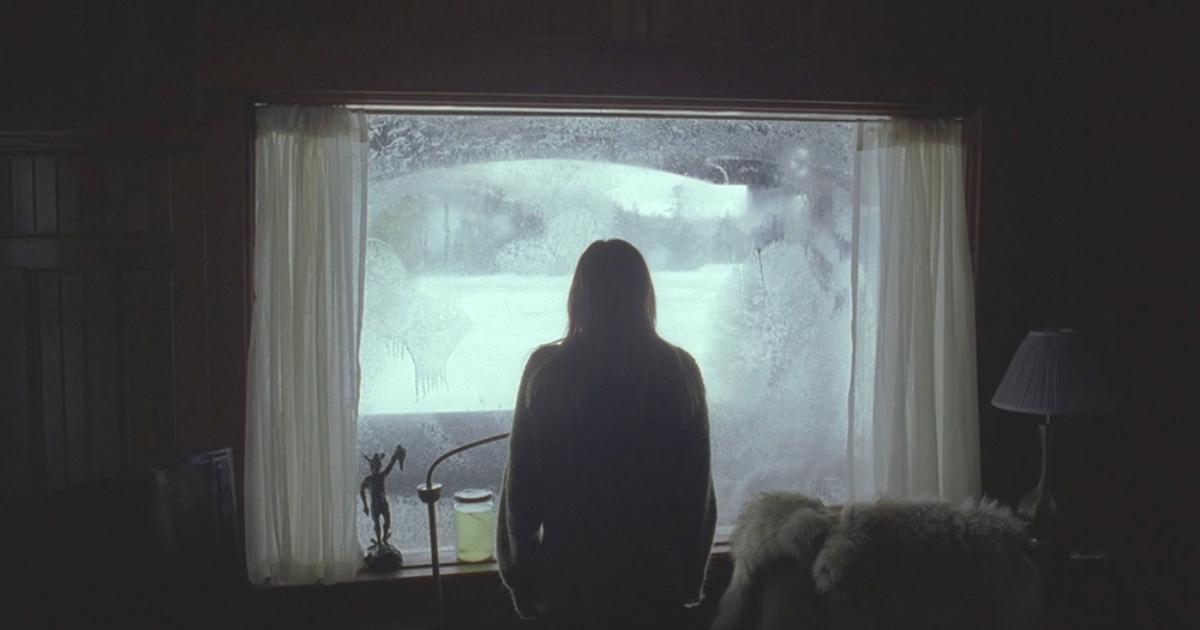
While it’s well known that studios tend to either dump their “bad” properties at the start of a new year or begin a year with a horror film with hopes that it may drum up business outside those hoping to catch up with the rush of Oscar contenders that drop at the end of the year, 2020 seems to be different.
There’s been a Grudge remake, a new spin on the story of Hansel and Gretel, and even an adaptation of The Turning of the Screw, all released more or less within a week of one another. And now it’s distributor Neon’s turn to get in on the game.
After a run on the festival circuit last year, The Lodge is finally hitting theaters on February 7, and finds directors Veronika Franz and Severin Fiala (Goodbye Mommy) once again telling a story of a home torn apart by grief. The film stars the always incredible Riley Keough as Grace, a former cult member who viewers meet as some sort of unknowable monster.
The film actually opens as a marriage is coming to a truly brutal conclusion. Richard (Richard Armitage in a great, but much too small, performance) plans on marrying his current girlfriend Grace, much to the dismay of his wife Laura (an incredible Alicia Silverstone) who, upon hearing that he wants to finalize their divorce, takes her own life in genuinely brutal and shocking fashion. Leaving their two children without a mother, this act sends the film down a perversely dark road, with the two children (played by Laeden Lieberher and Lia McHugh) placing the majority of the blame for their mother’s death not on her but on their father’s new, seemingly ghoulish partner. When the children realize she was the sole survivor of her father’s cult, they become even more against their partnership, culminating in a film of startling paranoia that’s ultimately undone by a series of ridiculous twists that are as repulsive as the previous scenes are surreal and captivating.
The Lodge isn’t an incompetent film, quite the opposite. Stylistically right up their with some of the very best “stuck in a cabin” films, The Lodge pairs two directors at their very height of their power with a cinematographer in Thimios Bakatakis who embeds within the film an astounding sense of dread and impending doom. At its very best, the film is a strangely haunting blend of spiritual horror and isolationary claustrophobia, with an inspired use of space and particularly a dollhouse that the children tend to as brief bursts of genuine surrealism. The muted photography also embraces the oppressive drabness of not just the frigid location but the near brutalism of the cabin’s interiors, ratcheting up the tension with every shift in location.
The performances are also quite great. Lieberher and McHugh are fine here, particularly in the early moments where the viewer’s sympathies are squarely in their hands. The trauma of losing a mother as your father intends to marry another woman is incredibly tactile in these opening sequences, particularly in Lieberher’s performance, that of a young man caught at an age where this type of grief feels incredibly specific. However, their performances are all but undone by a series of twists in the back half of the film, particularly the very final act, that find sympathies not only shift but find that very shift to be infuriatingly manipulative. The children are revealed to have much more agency in the situation they find themselves in and when it is revealed as to what extent they have control over the proceedings the film becomes almost offensive in its manipulation.
It’s really the Riley Keough show, however. Her performance is one of her very best, playing a sort of dual character here, with both sides of the Grace coin coming across in a manner that’s singular and seemingly lived in. As she attempts to get to know the kids her frustration occasional bursts out in a manner that feels true and strangely relatable for anyone who’s attempted to join a family, and yet there’s a genuine tenderness in her eyes and her voice that makes one think that she’s gone from former cult member into a fully aware member of society. Her relationship to Richard feels rightly strange (she’s a former patient of his), but their chemistry is palpable, and both are best when they’re together in a scene. Armitage is great, and Silverstone absolutely steals the show in what amounts to ostensibly one scene, a scene that’s as surreal and haunting as it is genuinely upsetting and raw.
The Lodge is a strange little picture. As far as atmosphere goes, it has it in spades, and with performances as good as the ones this film has, it would be hard to avoid recommending it. However, as it is a film about grief and one’s handling of it, the final few sequences turn what is an unsettling horror picture into something almost disgustingly manipulative. Endlessly creepy, no doubt, the film ultimately amounts to little more than a frustrated eye roll.



